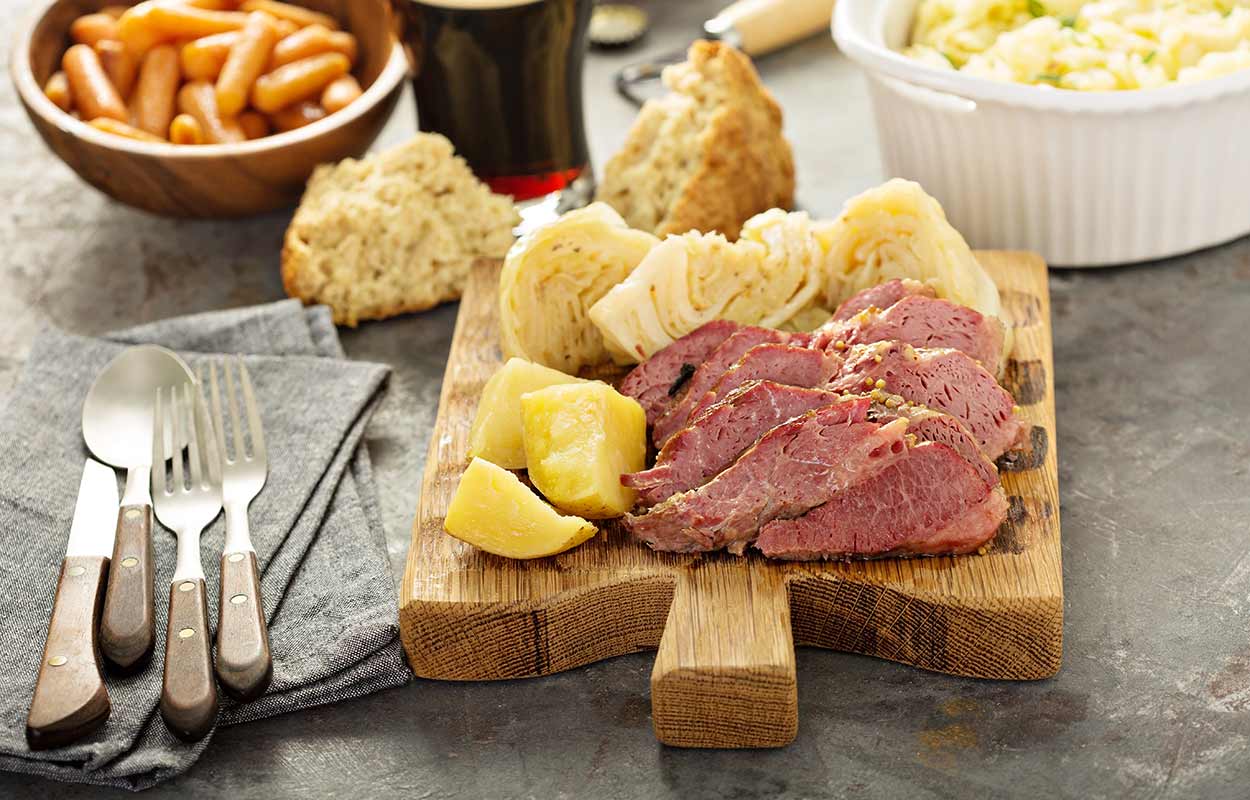The Irish Influence on Southern Cuisine: A Deep Dive into Culinary Heritage
The Southern United States boasts a rich tapestry of culinary traditions, shaped by a myriad of cultures over centuries. Among these influences, the Irish have left an indelible mark on Southern cuisine. This exploration delves into how Irish culinary practices merged with Southern traditions, creating a unique fusion of flavors that continue to delight palates today. We'll also contrast this with the Scottish influence to highlight the distinct contributions of each culture.
Historical Context of Irish Immigration
The influx of Irish immigrants to the United States began in earnest during the 18th century, with a significant surge during the Great Famine of the 1840s. While many settled in the urban centers of the Northeast, a considerable number made their way to the Southern states, including Georgia, the Carolinas, and Louisiana. The Irish immigrants, often facing hardship and seeking new opportunities, brought with them their culinary traditions rooted in simplicity and resourcefulness.
Culinary Contributions of the Irish to Southern Cuisine
The Irish influence on Southern cuisine is both subtle and profound, reflected in various dishes and cooking techniques that have become staples in the region.
- Emphasis on Potatoes: The potato, a cornerstone of Irish cooking, found a receptive audience in the South. Dishes like mashed potatoes and potato soups became common, with regional twists incorporating local ingredients.
- Stews and One-Pot Meals: The Irish tradition of hearty stews made with available meats and vegetables influenced Southern dishes like Brunswick stew, integrating local game and produce.
- Breads: Irish soda bread, known for its simplicity and use of basic ingredients like baking soda instead of yeast, inspired Southern quick breads and biscuits.
Integration with Southern Ingredients and Techniques
The marriage of Irish culinary practices with Southern ingredients led to innovative dishes that utilized the best of both worlds.
- Cabbage and Greens: Cabbage, a staple in Irish diets, merged with Southern greens like collards and turnips, leading to a variety of cooked greens dishes seasoned with smoked meats.
- Cornbread Variations: While cornbread is indigenous to the Americas, the Irish influence is seen in recipes that incorporate buttermilk and baking soda, akin to traditional Irish bread-making techniques.
- Seafood Dishes: In coastal Southern areas like Louisiana, Irish immigrants contributed to the development of seafood-based dishes, combining their familiarity with seafood with local spices and cooking methods.
Contrast with Scottish Influence
While both Irish and Scottish immigrants impacted Southern culture, their culinary influences have distinct differences.
- Scottish Influence: The Scottish brought traditions like whisky distillation, which evolved into the Southern bourbon industry. They also contributed to meat curing techniques and the popularity of oatmeal and porridges in certain regions.
- Irish Influence: The Irish impact is more evident in comfort foods like stews and breads. Their influence is seen in the adaptation of simple, hearty meals that make use of readily available ingredients.
- Cultural Integration: Scottish influences often remained within specific communities, while Irish culinary practices blended more broadly into the general Southern cuisine, partly due to the larger number of Irish immigrants.
The Legacy of Irish Cuisine in the Modern South
Today, the Irish influence persists in Southern cooking, often unnoticed due to its seamless integration over generations.
- St. Patrick's Day Celebrations: Cities like Savannah, Georgia, host grand St. Patrick's Day parades, highlighting Irish heritage and featuring traditional Irish foods with a Southern twist.
- Farm-to-Table Movements: The Irish emphasis on fresh, local ingredients resonates with contemporary Southern chefs who prioritize farm-to-table practices.
- Culinary Education: Cooking schools and food festivals increasingly explore historical influences, bringing attention to the Irish roots of certain Southern dishes.
Conclusion
The Irish influence on Southern cuisine represents a fusion of resilience and adaptability. Through their culinary traditions, Irish immigrants enriched the Southern food landscape, introducing dishes and techniques that have become deeply embedded in regional cooking. While sharing some similarities with Scottish contributions, the Irish impact is distinct in its emphasis on hearty, comforting foods that utilize simple ingredients. This enduring legacy reflects the dynamic evolution of Southern cuisine, continually shaped by the diverse cultures that call the region home.
Cucina Di Madre Terra
Our primary aim is to nurture local food ecosystems, encompassing a wide range of participants from producers to food distributors, fostering collaboration for collective success. We support local producers through mentorship and marketing grants, and emphasize the preservation of Southern US food heritage as a means of economic development. Additionally, we strive to bridge urban and rural communities, increasing consumer awareness of local cuisine and produce, and facilitating direct connections with small farmers and producers.


